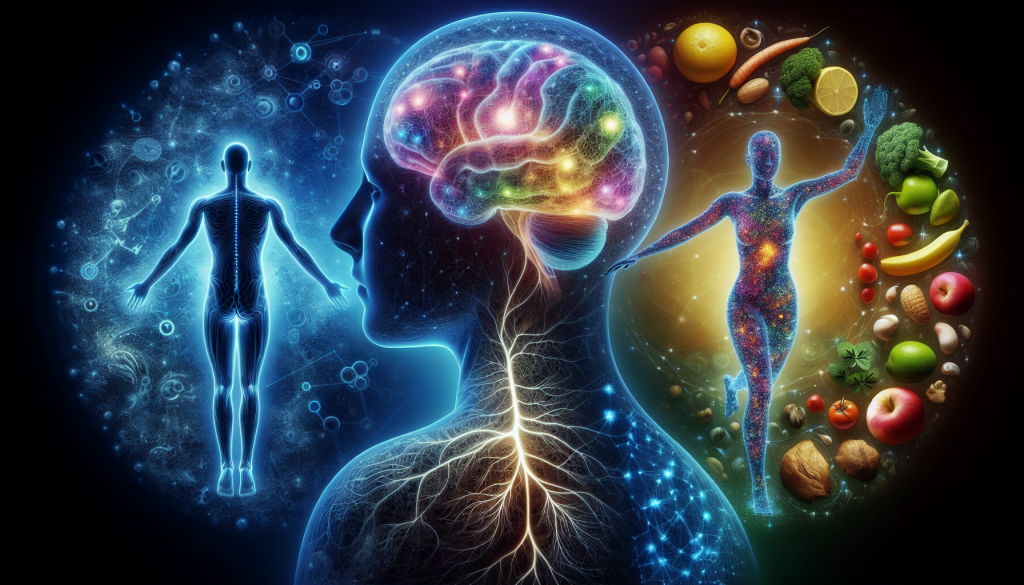The intricate relationship between thoughts, physical sensations, and health is a fascinating subject that has captivated scientists, psychologists, and health enthusiasts alike. This blog post delves into the profound ways our mental state can influence our physical health, and vice versa. It’s a journey that will take us from the realms of psychology to the mysteries of our gut, and even into the world of therapeutic approaches. Intrigued? Let’s dive in.
Key Takeaways
- Understanding the relationship between thoughts, physical sensations, and health can lead to improved well-being.
- Stress, anxiety, and depression can have significant physical manifestations.
- The gut-brain connection plays a crucial role in both mental and physical health.
- Therapeutic approaches like Cognitive Behavioral Therapy (CBT) and mindfulness can help manage the interplay between mental and physical health.
- Lifestyle changes, including diet and exercise, can positively influence this relationship.
Introduction to the Relationship Between Thoughts, Physical Sensations, and Health
Overview of how thoughts influence physical health
Our thoughts have a powerful impact on our physical health. Negative thoughts can trigger physical responses such as increased heart rate, elevated blood pressure, and weakened immune function. On the other hand, positive thoughts can promote physical well-being, enhancing immune function and promoting healing.
Importance of understanding this relationship for overall well-being
Understanding this relationship is crucial for maintaining and improving our overall well-being. It allows us to take proactive steps towards managing our mental health, which in turn can lead to improved physical health.

The Psychological Impact on Physical Health
Role of stress and anxiety on the body
Stress and anxiety can have a profound impact on our bodies. They can trigger the release of stress hormones, which can disrupt various bodily functions.
Impact on the immune system
Chronic stress can weaken the immune system, making us more susceptible to infections and diseases. This is a clear demonstration of the mind-body connection and the immune system.
Influence on heart health
Stress and anxiety can also increase the risk of heart disease by raising blood pressure and cholesterol levels.
Depression and its physical manifestations
Depression is not just a mental health condition. It can also lead to physical symptoms.
Changes in sleep patterns
Depression can cause insomnia or hypersomnia, both of which can have detrimental effects on physical health.
Effects on appetite and weight
Depression can also lead to changes in appetite, leading to weight loss or weight gain, which can further impact physical health.

The Gut-Brain Connection
Communication between the digestive system and brain
The gut and the brain communicate with each other through a complex network of nerves and hormones. This is known as the gut-brain connection.
Impact on mental health
The gut-brain connection can influence our mental health. For instance, an imbalance in the gut microbiota can lead to mood disorders such as depression and anxiety. This is a fascinating aspect of the connection between physical and mental health in holistic wellness.
Influence on physical health
The gut-brain connection can also impact our physical health. For example, chronic stress can disrupt the gut microbiota, leading to digestive issues.
Role of the microbiome in emotional and physical health
The gut microbiome plays a crucial role in both our emotional and physical health.
Effects on mood and behavior
The gut microbiome can influence our mood and behavior. Certain types of bacteria in the gut can produce neurotransmitters like serotonin and dopamine, which can influence our mood.
Connection to immune function
The gut microbiome also plays a crucial role in our immune function. A healthy gut microbiome can enhance immune function, while an imbalanced gut microbiome can lead to immune dysfunction.

Therapeutic Approaches and Their Effects
Cognitive Behavioral Therapy (CBT)
Cognitive Behavioral Therapy (CBT) is a type of psychotherapy that can help manage the relationship between thoughts, physical sensations, and health.
Changing negative thought patterns
CBT can help individuals identify and change negative thought patterns, which can lead to improved mental and physical health.
Reducing physical symptoms associated with mental health issues
CBT can also help reduce physical symptoms associated with mental health issues, such as pain, fatigue, and sleep disturbances. This is an important aspect of the mind-body connection in chronic illness.
Mindfulness and Meditation
Mindfulness and meditation are other therapeutic approaches that can help manage the interplay between mental and physical health.
Enhancing stress response
Mindfulness and meditation can enhance our stress response, leading to improved physical health. They can help reduce blood pressure, improve sleep, and enhance immune function.
Improving physical health through mental practices
Mindfulness and meditation can also improve physical health through mental practices. For instance, mindfulness-based stress reduction (MBSR) has been shown to reduce pain and improve quality of life in individuals with chronic illnesses.

Biological Underpinnings of Thought and Health Interaction
Anatomy of the gut-brain connection
The gut-brain connection is underpinned by a complex network of nerves and hormones.
Role of the enteric nervous system
The enteric nervous system, often referred to as the “second brain,” plays a crucial role in the gut-brain connection. It can function independently of the central nervous system and can influence our mental and physical health.
Function of the vagus nerve
The vagus nerve is another key player in the gut-brain connection. It acts as a communication highway between the gut and the brain, transmitting signals in both directions.
Neurological pathways involved in the thought-health relationship
There are several neurological pathways involved in the relationship between thoughts and health.
Neural mechanisms of stress and relaxation
The neural mechanisms of stress and relaxation play a crucial role in this relationship. The stress response is mediated by the sympathetic nervous system, while the relaxation response is mediated by the parasympathetic nervous system.
Impact on hormonal balance and physical well-being
These neural mechanisms can impact hormonal balance and physical well-being. For instance, chronic stress can lead to hormonal imbalances, which can disrupt various bodily functions and lead to health issues.
Practical Applications and Lifestyle Changes
Dietary influences on mental and physical health
Diet can have a profound impact on both mental and physical health.
Nutritional strategies for improving gut health
Certain nutritional strategies can improve gut health, which can in turn enhance mental and physical health. For instance, a diet rich in fiber and fermented foods can promote a healthy gut microbiome.
Foods that enhance cognitive function and mood
Certain foods can enhance cognitive function and mood. For instance, foods rich in omega-3 fatty acids, such as fatty fish, can enhance brain function and mood.
Physical activity as a mediator
Physical activity can also mediate the relationship between thoughts, physical sensations, and health.
Exercise’s role in managing stress and mental health
Exercise can help manage stress and improve mental health. It can trigger the release of endorphins, the body’s natural mood boosters, and can also enhance cognitive function.
Benefits for physical health and disease prevention
Exercise can also have numerous benefits for physical health and disease prevention. It can improve cardiovascular health, enhance immune function, and reduce the risk of various diseases.

Conclusion
Summary of key points
The relationship between thoughts, physical sensations, and health is complex and multifaceted. It involves various factors, including stress, the gut-brain connection, and lifestyle factors like diet and exercise.
Importance of integrated approaches to health
Understanding this relationship underscores the importance of integrated approaches to health.
Combining psychological, physical, and nutritional strategies
Combining psychological, physical, and nutritional strategies can help manage the interplay between mental and physical health. This can lead to improved overall well-being.
Encouraging holistic health practices for long-term well-being
Encouraging holistic health practices can promote long-term well-being. This includes not only managing physical health but also taking care of our mental health, which is an integral part of the connection between thoughts and physical sensations.
In conclusion, the relationship between thoughts, physical sensations, and health is a fascinating and complex field. By understanding this relationship, we can take proactive steps towards improving our overall well-being. So, let’s start paying attention to our thoughts, as they can have a profound impact on our physical health.
Unraveling the Mind-Body Connection: Your FAQ Guide to Thoughts, Physical Sensations, and Health
How do thoughts affect physical health?
Thoughts have a profound impact on physical health through the brain-body connection. Positive thoughts can stimulate the release of chemicals like serotonin and dopamine, which promote well-being and can strengthen the immune system. Conversely, negative thoughts can lead to the production of stress hormones like cortisol, which, when chronically elevated, can harm the body by suppressing immune function, increasing blood pressure, and contributing to heart disease and other health issues.
Can changing my thoughts improve my physical health?
Yes, changing your thought patterns can significantly improve your physical health. Techniques such as cognitive-behavioral therapy (CBT), mindfulness, and positive affirmations can help rewire the brain to respond more positively to stressors, reducing the production of harmful stress hormones and enhancing overall well-being. This mental shift can lead to lower blood pressure, improved immune function, and a decreased risk of chronic diseases.
What are physical sensations, and how are they linked to health?
Physical sensations are the body’s way of communicating its needs, alerting to potential dangers, or indicating the state of our health. They can range from hunger, thirst, and fatigue, to pain and discomfort. These sensations are closely linked to health as they can signal both immediate issues, like the need to eat or rest, and more serious, underlying health problems. Ignoring these signals can lead to worsened health conditions, whereas paying attention to them can help in maintaining overall well-being.
How can stress be physically felt in the body?
Stress can manifest in the body in various ways, including muscle tension, headaches, stomach upset, fatigue, and changes in appetite. Chronic stress can also exacerbate existing health conditions, such as heart disease, diabetes, and gastrointestinal issues. The physical sensations of stress are part of the body’s fight-or-flight response, preparing the body to face or escape perceived threats. Managing stress through relaxation techniques, exercise, and mindfulness can help alleviate these physical symptoms.
Can physical exercise influence thoughts and mental health?
Absolutely. Physical exercise is a powerful tool for improving mental health. It can help reduce symptoms of depression and anxiety, enhance mood, and improve self-esteem. Exercise stimulates the release of endorphins, often referred to as the body’s natural mood lifters. Regular physical activity can also help regulate sleep patterns, reduce stress, and improve cognitive function, leading to a healthier mind in a healthier body.
What role does diet play in the relationship between thoughts, physical sensations, and health?
Diet plays a crucial role in this relationship. Nutritious foods provide the body with essential vitamins, minerals, and antioxidants that support brain function and overall health. A healthy diet can influence mood, energy levels, and cognitive function, while a poor diet can lead to increased feelings of depression and anxiety, as well as physical health issues like obesity, heart disease, and diabetes. Eating a balanced diet can help maintain a positive mood and reduce the risk of chronic health conditions.
How can mindfulness and meditation affect physical sensations and health?
Mindfulness and meditation can have a profound impact on both physical sensations and overall health. These practices help in reducing stress, lowering blood pressure, and improving immune function. By focusing on the present moment and becoming more aware of thoughts and bodily sensations without judgment, individuals can break the cycle of chronic stress and its negative impact on physical health. Regular practice can lead to long-term improvements in both mental and physical well-being.
Is there a connection between sleep and the mind-body health relationship?
Yes, sleep is a critical component of the mind-body health relationship. Adequate sleep is essential for cognitive function, emotional well-being, and physical health. It allows the brain to process emotional and psychological experiences and consolidate memories. Poor sleep can exacerbate mental health issues, impair cognitive function, and increase the risk of physical health problems like obesity, diabetes, and cardiovascular disease. Ensuring sufficient and quality sleep is vital for maintaining the balance between mind and body health.



